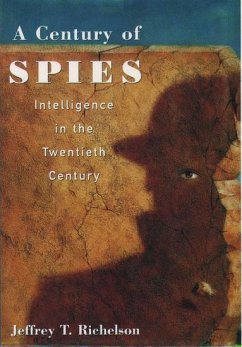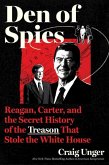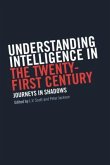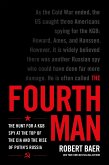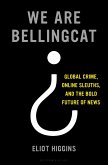The increasing importance of technology is a central theme in the book, from the advances in reconnaissance that make modern warfare possible to the spy satellites that help to verify arms control treaties. With the end of the cold war Richelson examines the role of intelligence in the 1990s and beyond, including the possibility of US-Soviet co-operation to combat terrorism and to halt the proliferation of nuclear, chemical, and biological weapons to developing countries.
Here is the ultimate inside history of twentieth-century intelligence gathering and covert activity. Unrivalled in its scope and as readable as any spy novel, A Century of Spies travels from tsarist Russia and the earliest days of the British Secret Service to the crises and uncertainties of today's post-Cold War world, offering an unsurpassed overview of the role of modern intelligence in every part of the globe. From spies and secret agents to the latest high-tech wizardry in signals and imagery surveillance, it provides fascinating, in-depth coverage of important operations of United States, British, Russian, Israeli, Chinese, German, and French intelligence services, and much more. All the key elements of modern intelligence activity are here. An expert whose books have received high marks from the intelligence and military communities, Jeffrey Richelson covers the crucial role of spy technology from the days of Marconi and the Wright Brothers to today's dazzling array of Space Age satellites, aircraft, and ground stations. He provides vivid portraits of spymasters, spies, and defectors--including Sidney Reilly, Herbert Yardley, Kim Philby, James Angleton, Markus Wolf, Reinhard Gehlen, Vitaly Yurchenko, Jonathan Pollard, and many others. Richelson paints a colorful portrait of World War I's spies and sabateurs, and illuminates the secret maneuvering that helped determine the outcome of the war on land, at sea, and on the diplomatic front; he investigates the enormous importance of intelligence operations in both the European and Pacific theaters in World War II, from the work of Allied and Nazi agents to the "black magic" of U.S. and British code breakers; and hegives us a complete overview of intelligence during the length of the Cold War, from superpower espionage and spy scandals to covert action and secret wars. A final chapter probes the still-evolving role of intelligence work in the new world of disorder and ethnic confli
Hinweis: Dieser Artikel kann nur an eine deutsche Lieferadresse ausgeliefert werden.
Here is the ultimate inside history of twentieth-century intelligence gathering and covert activity. Unrivalled in its scope and as readable as any spy novel, A Century of Spies travels from tsarist Russia and the earliest days of the British Secret Service to the crises and uncertainties of today's post-Cold War world, offering an unsurpassed overview of the role of modern intelligence in every part of the globe. From spies and secret agents to the latest high-tech wizardry in signals and imagery surveillance, it provides fascinating, in-depth coverage of important operations of United States, British, Russian, Israeli, Chinese, German, and French intelligence services, and much more. All the key elements of modern intelligence activity are here. An expert whose books have received high marks from the intelligence and military communities, Jeffrey Richelson covers the crucial role of spy technology from the days of Marconi and the Wright Brothers to today's dazzling array of Space Age satellites, aircraft, and ground stations. He provides vivid portraits of spymasters, spies, and defectors--including Sidney Reilly, Herbert Yardley, Kim Philby, James Angleton, Markus Wolf, Reinhard Gehlen, Vitaly Yurchenko, Jonathan Pollard, and many others. Richelson paints a colorful portrait of World War I's spies and sabateurs, and illuminates the secret maneuvering that helped determine the outcome of the war on land, at sea, and on the diplomatic front; he investigates the enormous importance of intelligence operations in both the European and Pacific theaters in World War II, from the work of Allied and Nazi agents to the "black magic" of U.S. and British code breakers; and hegives us a complete overview of intelligence during the length of the Cold War, from superpower espionage and spy scandals to covert action and secret wars. A final chapter probes the still-evolving role of intelligence work in the new world of disorder and ethnic confli
Hinweis: Dieser Artikel kann nur an eine deutsche Lieferadresse ausgeliefert werden.

